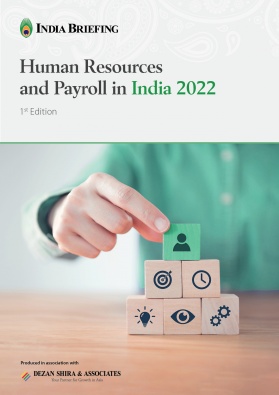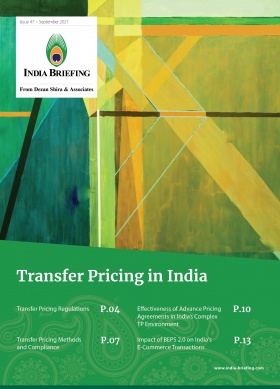Payment Aggregators in India Have Until Sept.30 for License Application
The Reserve Bank of India (RBI) has extended the license application window for payment aggregators that were in existence as of March 17, 2020. These entities can now apply for a license seeking authorization from the RBI by September 30, 2022. To be eligible, the payment aggregators should have had a minimum net worth of INR 150 million as of March 31, 2022. The timeline for payment aggregators to achieve net worth of INR 250 million by March 31, 2023 remains unchanged.
As per a notification dated July 28, 2022, the Reserve Bank of India (RBI) has extended the license application window for online non-bank payment aggregators till September 30, 2022.
Previously, all payment aggregators – as existing on March 17, 2020 – were required to apply to the RBI by September 30, 2021 – for seeking authorization under the Payment and Settlement Systems Act, 2007 (PSS Act). However, the application window was extended by a year due to the disruptions caused by the Covid-19 pandemic.
So far, several payment providers like Razorpay, Pine Labs, Stripe, 1Pay, and Innoviti Payments have received in-principle (provisional) approval from the RBI for a payment aggregators license.
Who are payment aggregators?
Payment aggregators are intermediaries that facilitate payments in online commercial transactions. These entities enable e-commerce websites, mobile apps, and merchants to accept various payment instruments from customers for completion of their payment obligations – without the need for merchants to create a separate payment integration system of their own.
The payment aggregators receive payments from the customers buying online, and subsequently pool and transfer these payments to the merchants after a specific time period.
What are India’s regulatory guidelines for payment aggregators?
In 2020, the RBI released the Guidelines on Regulation of Payment Aggregators and Payment Gateways, which mandated that only the companies approved by the regulator would be allowed to acquire and offer payment services to merchants.
The RBI has prescribed various eligibility criteria for payment aggregators to be able to apply for a license, including the minimum net worth requirement. The guidelines also mandate that all payment aggregators must comply with the rules and adopt the technology-related recommendations made by the RBI.
The guidelines also govern all domestic import and export related payments facilitated by payment aggregators.
To be noted, these guidelines are not applicable to the Cash on Delivery (CoD) e-commerce model.
Authorization process
Entities seeking authorization as payment aggregator from the RBI under the PSS Act, shall apply in Form A to the Department of Payment and Settlement Systems (DPSS), RBI, Central Office, Mumbai, on or before September 30, 2022.
Entities regulated by any of the financial sector regulators shall submit a ‘No Objection Certificate’ from their respective regulator alongside their application, within 45 days of obtaining such a clearance.
Eligibility requirement for license to operate as payment aggregator
The payment aggregator applying to the RBI for a license must be a company incorporated in India under the Companies Act, 1956/2013 and the Memorandum of Association (MoA) of the applicant entity must cover the proposed activity of operating as a payment aggregator.
The RBI guidelines state that such payment aggregators shall be allowed to continue their operations till they receive communication from RBI regarding the status of their application.
According to reports, almost 180 applications have been received till date, of which many have been approved while some have been rejected.
Capital requirements
Payment aggregators should have a minimum net worth of INR 150 million as of March 31, 2022 and a net worth of INR 250 million by the end of March 31, 2023. The net-worth of INR 250 million shall be maintained at all times thereafter. Payment aggregators that are not able to comply with the net-worth requirement within the stipulated time frame shall wind-up their payment aggregation business. The banks maintaining nodal / escrow accounts of such entities shall monitor and report compliance in this regard.
The net-worth shall consist of paid-up equity capital, preference shares that are compulsorily convertible to equity, free reserves, balance in share premium account and capital reserves representing surplus arising out of sale proceeds of assets but not reserves created by revaluation of assets adjusted for accumulated loss balance, book value of intangible assets and deferred revenue expenditure, if any. The compulsorily convertible preference shares can be either non-cumulative or cumulative, and they should be compulsorily convertible into equity shares and the shareholder agreements should specifically prohibit any withdrawal of this preference capital at any time.
The payment aggregators must submit a certificate in the enclosed format from their Chartered Accountants to provide evidence of compliance with the applicable net-worth requirement while submitting their application for authorization. Newly incorporated non-bank entities that may not have an audited statement of financial accounts shall submit a certificate in the enclosed format from their Chartered Accountants regarding the current net-worth along with provisional balance sheet.
About Us
India Briefing is produced by Dezan Shira & Associates. The firm assists foreign investors throughout Asia from offices across the world, including in Delhi and Mumbai. Readers may write to india@dezshira.com for more support on doing business in in India.
We also maintain offices or have alliance partners assisting foreign investors in Indonesia, Singapore, Vietnam, Philippines, Malaysia, Thailand, Italy, Germany, and the United States, in addition to practices in Bangladesh and Russia.
- Previous Article Investing in India’s Education Market: New Growth Drivers
- Next Article RBI Extends Deadline for Implementation of Card Tokenization Till Sept 30, 2022









